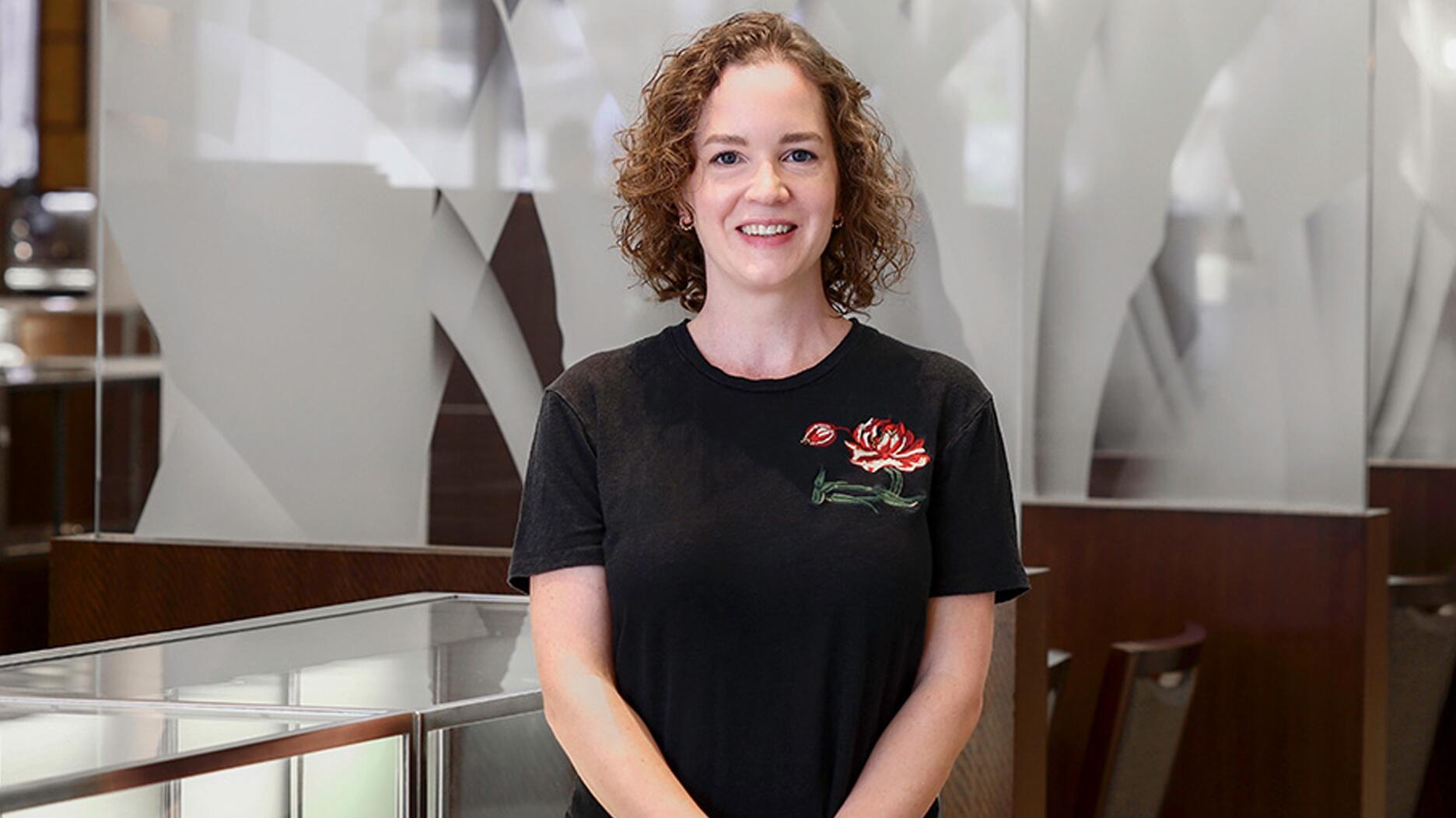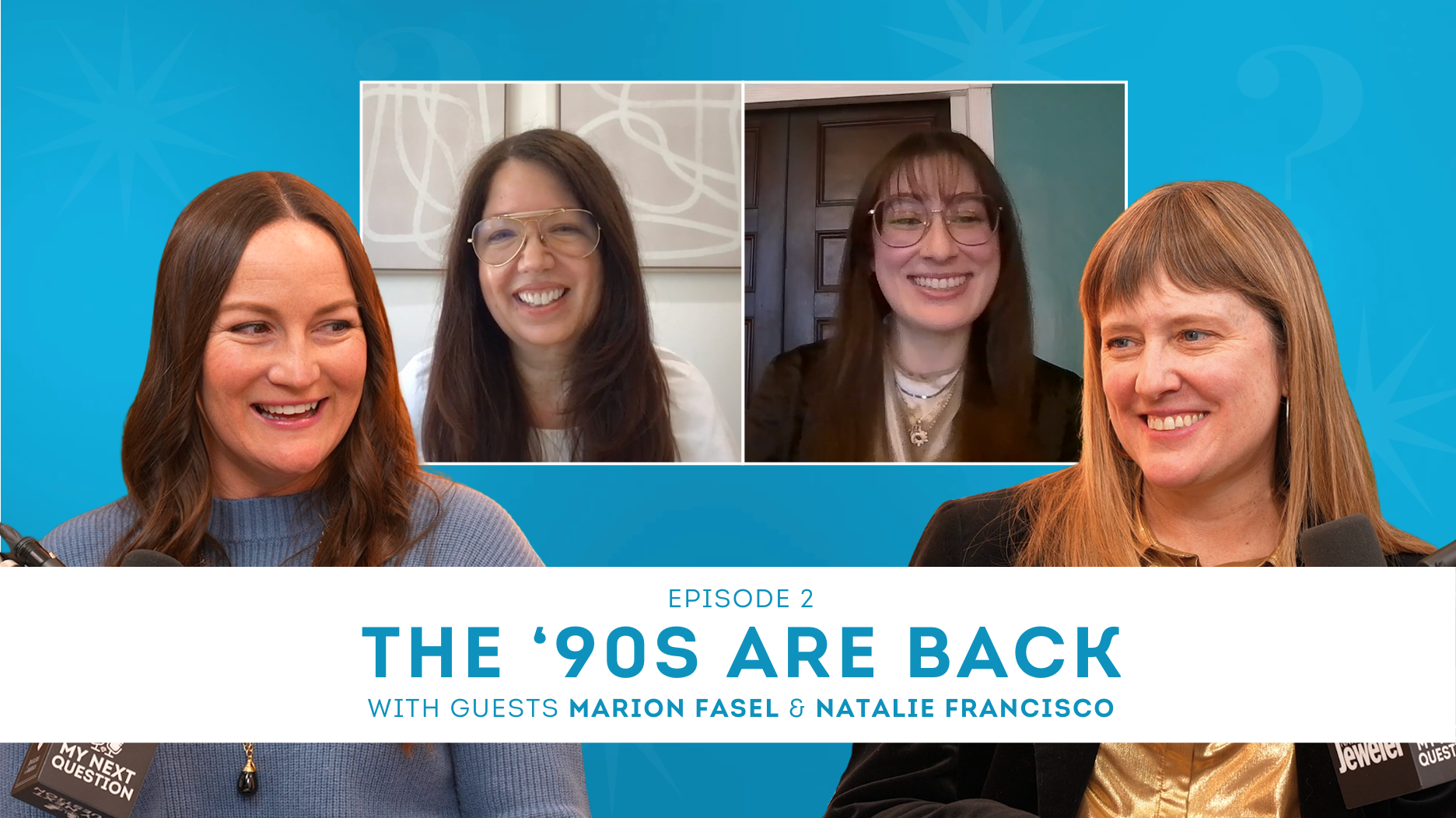Diamond jewelry was the star of the event formerly known as the SAG Awards.
Squirrel Spotting: The Logical Case for Emotion in Selling
Peter Smith says if you are hiring salespeople based on experience and product knowledge alone, then you are doing it wrong.

One of the great complexities in sales is how we handle both hiring salespeople and training them once they have been onboarded.
Most of us would agree that the combination of those the two powerful forces serves as an important foundation to position our respective businesses for sales success, and yet I would suggest that we are all too often getting it wrong.
When interviewing candidates, we tend to default not only to industry experience, but to product knowledge as key drivers of our hiring decisions. The prevailing idea here is that if a candidate has better product knowledge, then they will be more successful in sales.
That presumption, while rationally sensible, is often misguided.
The social sciences have shown time and again that great salespeople move customers to action because they connect with them emotionally, not because they provide them with more product information.
In fact, there is ample evidence to suggest that those who have the most product knowledge tend to be the least effective in sales.
When I talk to both retail and supplier-side colleagues and ask them to describe their best salespeople historically, they very often describe salespeople who were not safe or predictable hires.
They weren’t the most knowledgeable or the most experienced members of the team. They were, however, very successful in sales.
Why is that? What is the key ingredient to becoming a top salesperson?
Christophe Morin and Patrick Renvoisé wrote a fascinating book called “The Persuasion Code: How Neuromarketing Can Help You Persuade Anyone, Anywhere, Anytime” in which they posited: “ … persuasion is not controlled by the rational brain. Rather, it is the primal brain that dominates the process, a brain that is mostly unconscious and preverbal. It appeared long before we started to use words to communicate.”
“Is it possible that too much of your [sales] training is focused on product information and too little on making real human connections?”Morin and Renvoisé are just the latest voices reminding us that we are not persuaded by facts, figures or rationalizations. We are moved by feelings, by emotions, by human connection.
Engaging with a salesperson who demonstrates a willingness to listen, who shows the appropriate, open and authentic body language, and who genuinely believes in what he or she is selling will almost always be more persuasive than a salesperson with a laundry list of product attributes and rationalizations.
If
Shouldn’t it change what we look for when interviewing sales candidates? Shouldn’t we be more open to candidates without previous experience and product knowledge?
And once those folks have been hired, is it possible that too much of your training is focused on product information and too little on making real human connections?
Thomas Gilovich and Lee Ross wrote in “The Wisest One in the Room: How You Can Benefit from Social Psychology’s Most Powerful Insights” that “the intuitive mind is more impulsive than the rational mind, and more likely to act, to render a judgement and lean toward a course of action, without surveying information beyond its immediate attention.”
If I’m buying a car, an appliance or a diamond ring, I am going to have some basic questions that need to be answered.
I expect my salesperson to have that information or be able to find it for me. I don’t want my salesperson to make stuff up, fake it or give me a blank stare. Having the appropriate amount of product information matters. It matters a lot.
Making a human connection, however, is ultimately what will persuade me to make a purchase.
Peter Smith is president of Memoire and author of two books, “Hiring Squirrels: 12 Essential Interview Questions to Uncover Great Retail Sales Talent,” and “Sell Something: Principles and Perspectives for Engaged Retail Salespeople.” Both books are available in print or Kindle at Amazon.com. Connect with Smith on LinkedIn or at dublinsmith@yahoo.com.
The Latest

Consumers were somewhat less worried about the future, though concerns about rising prices and politics remained.

Foerster is this year’s Stanley Schechter Award recipient.

Every jeweler faces the same challenge: helping customers protect what they love. Here’s the solution designed for today’s jewelry business.

Sponsorships and tickets to the annual fundraising event, set for May 31, are available now.

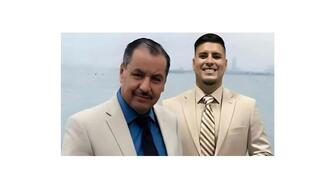
Chicago police and members of the U.S. Marshals Service tracked down the 35-year-old suspect earlier this week in St. Louis.

Owners of the Ekapa Mine reportedly filed for liquidation about a week after a mudslide trapped five workers who have yet to be found.

With refreshed branding, a new website, updated courses, and a pathway for growth, DCA is dedicated to supporting retail staff development.

A 10-year alliance has also begun to address the shortage of bench jewelers through scholarships, enhanced programs, and updated equipment.
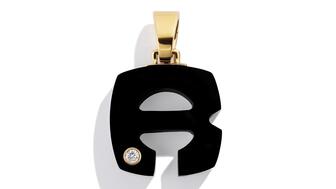
The “Splendente” collection has evolved to feature hardstone letter pendants, including our Piece of the Week, the onyx “R.”
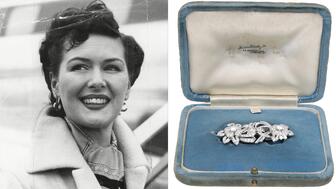
The jewelry collection belonged to “one of society's most glamorous and beautiful women of the mid-20th century,” said the auction house.

The update came as Anglo took its third write-down on the diamond miner and marketer, which lost more than $500 million in 2025.

Emmanuel Raheb discusses the rise of “GEO” and the importance of having well-written, quality content on your website.

Each received around four years for burglarizing a jewelry store and a coffee shop in Simi Valley, California, last May.
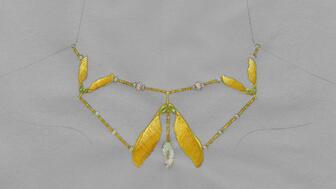
Catherine Aulick, a GIA graduate, received the ninth and final Gianmaria Buccellati Foundation Award for Excellence in Jewelry Design.

We asked a jewelry historian, designer, bridal director, and wedding expert what’s trending in engagement rings. Here’s what they said.

Experts from India weigh in the politics, policies, and market dynamics for diamantaires to monitor in 2026 and beyond.

Beth Gerstein discusses the vibe of the new store, what customers want when fine jewelry shopping today, and the details of “Date Night.”

Are arm bands poised to make a comeback? Has red-carpet jewelry become boring? Find out on the second episode of the “My Next Question” podcast.

The Swiss watchmaker is battling declining sales amid a rapid retail expansion, according to a Financial Times report.
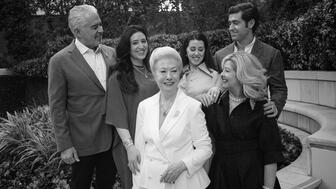
The campaign celebrates Giustina Pavanello Rahaminov, the co-founder’s wife and matriarch of the family-owned brand, for her 88th birthday.

After the Supreme Court struck down the IEEPA tariffs, President Trump imposed a 10 percent tax on almost all imports via a different law.

The vintage signed jewelry retailer chose Miami due to growing client demand in the city and the greater Latin American region.

Former Flight Club executive Jin Lee will bring his experience from the sneaker world to the pre-owned watch marketplace.
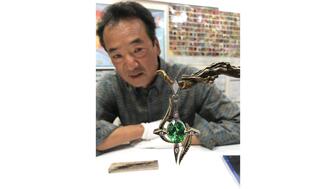
Sakamoto, who died in mid-January following a sudden illness, is remembered for his humility and his masterful, architectural designs.
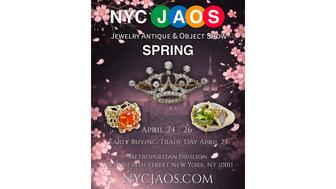
The April event will feature a new VIP shopping day requiring a special ticket.

Bulgari chose the British-Albanian singer-songwriter for her powerful and enduring voice in contemporary culture, the jeweler said.










